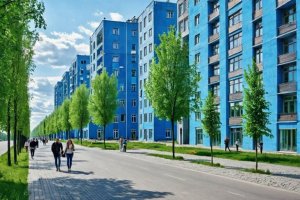
Rent or change? What will happen to housing prices after the cancellation of preferential mortgages
Transactions on the secondary real estate market froze in anticipation of how the abolition of preferential mortgages at 8% for new buildings from July 1, 2024 will transform the real estate market. Many are afraid that prices on the secondary market will rise even more if the conditions for the primary real estate market become less attractive. In addition, someone, on the contrary, believes that this can create new opportunities for those who want to invest in real estate. Sellers and buyers will wait at least until autumn to understand the new rules of the «game». We are looking into whether the secondary market will benefit or lose from attempts by officials to tighten conditions for the primary real estate market and freeze price growth there.
Participants in the construction market and experienced buyers of housing know perfectly well that the primary real estate market always pulls the secondary market. Any changes that occur in the first one are reflected in the secondary real estate market after some time.
A striking example of this has always been the price dependence of the two markets. Prices for new buildings, which accelerated after the adoption of preferential mortgage programs with state support in 2020, also warmed up the secondary market. According to the Real Estate Bulletin portal, the cost of a "square" on the primary real estate market in St. Petersburg is now approaching 250 thousand rubles. In 2019, this index was slightly above 100 thousand.
The Central Bank decided to bring down the frenzied rise in real estate prices by canceling preferential mortgages with state support at 8% for new buildings from July 1, 2024. Now this market is going to undergo drastic changes. The same secondary market has always depended on mortgages to a much lesser extent, here buyers and sellers traditionally rely more on exchanges, which have frozen while waiting for what will happen next. Meanwhile, the average price per square meter in the secondary market of the Saint-Petersburg has also exceeded 200,000 rubles.
One-bedroom apartment for 100 000 rubles a month
For a secondary real estate market mortgage, the initial payment is now 20%, and the market rate starts at 17%. On average, this is 18.6%, but it can reach up to 20.3%. There are certain programs for certain categories of the population (large families, recognized as in need of housing), for a narrow range of regions (the Far East and the Arctic). There are support options for certain categories of workers and employees (teachers, military).
The realtor of "Makromir" Olga Gorbach gives the following calculations for the "secondary" mortgage at the moment. If you take 4 million from the bank for 30 years, you will have to pay 57-72 thousand rubles a month (depending on the size of the rate). On the "primary" payments under the same conditions will amount to 43-48 thousand.
— In the first version, the overpayment to the bank for these 30 years can be estimated at 13 million rubles, in the new building market — at 5 million rubles. That's why there have always been exchanges. They may now be broken in time. For example, people have bought an apartment, but they are not selling their own yet, waiting for the child to finish the school year," Olga Gorbach noted.
Meanwhile, the other day, the state media, with reference to CIAN, disseminated information on how the monthly mortgage payment for new buildings for Russians on one-bedroom apartments will change after July 1, when the rate will become 18% instead of 8% (the average now for the commercial market). The calculations were made taking into account the initial payment of 30%. The rate will increase by 2.25 times. Therefore, if the average payment in Moscow and St. Petersburg is 48 thousand, then it will grow to 166 and 114.4 thousand.
CIAN does not explain why there will be a difference in amounts. Obviously, such amounts will become prohibitive for the "primary" and will be more than twice as high as they are now on the "secondary".
Who will buy what?
The Central Bank has been trying to cancel preferential mortgage programs in the new-build market for several years. But at the beginning of 2024, it became clear that such attempts would still be implemented.
It was in 2024, against the background of news about the canceling of preferential mortgages, transactions in the secondary market became much less than in 2023. Homeowners are waiting to see what happens next. Another reason why the exchange froze is the high deposit rate. As soon as it decreases, people, as always, will carry money into real estate, and, most likely, it will be precisely the "secondary". Since this is a ready-made housing that you can move into, and not wait for the construction to be completed. Deferred demand will also contribute," says Olga Gorbach.
Alexey Lyakin, director of the agency "Honey, I Am Home", notes that in May 2024, there was already a slowdown in the growth of prices for secondary real estate in million-plus cities, including St. Petersburg, where the positive dynamics was only 0.3%.
— Buyers have become less active, and the number of new requests for the purchase of real estate has decreased. This is due to expectations of changing market conditions and general uncertainty. Sellers, in turn, are ready for discounts, although they try to keep prices down. From July 1, we can expect an increase in interest in secondary housing. One of the reasons is a significant rise in the price of mortgages for new buildings," states Alexey Lyakin.
Georgy Patanin, a real estate expert and head of a real estate agency, believes that under no circumstances will the secondary housing be of interest, for example, to IT specialists.
— IT specialists with an analytical mindset are well aware of the long-term financial consequences. Therefore, they are likely to avoid purchases on the "secondary market", despite the apparent attractiveness of a lower price. Even taking into account the possible decline in real estate prices in the next three years, the purchase of housing in the secondary market with high mortgage rates will become economically unprofitable, " argues Georgy Patanin.
Ekaterina Pozdnyakova, Project manager of the Garnet investment company, holds the opposite point of view. In her opinion, many IT specialists consider real estate not only as a place to live, but also as an investment.
— In an unstable primary real estate market, where developers are forced to come up with new ways to attract customers, secondary housing may seem to be a more reliable option. This is especially true for facilities in the central areas of the city and in areas with good transport accessibility," she believes.
Some analysts believe that with the abolition of preferential mortgages, the same young people who planned to buy a home will now prefer to rent it. Rent payments, despite their growth, may be less burdensome compared to mortgage payments at high rates.
Maria Tarasova, CEO and founder of the real estate agency, predicts that many potential buyers who are accustomed to more affordable mortgage conditions may postpone their decisions about buying a home, waiting for new conditions or more favorable offers.
— As a result, we can observe a temporary reduction in demand for housing, which, in turn, will lead to price stabilization," she believes.
Further Prices
According to most experts, the abolition of preferential mortgages on the primary real estate markets will not accelerate prices on the secondary, but may lead to a slight decrease in the market of new buildings.
Alla Shinkevich, CEO of the Nevsky Prostor real estate agency, believes that prices are likely to remain at the current level.
— Sure, the secondary housing is not cheap, but there is always an opportunity to bargain. Unlike secondary housing, prices for "primary" housing may decrease slightly unless some alternative solutions are made at low rates, for example, additional subsidized mortgage programs or interest-free installments. Everything will depend on the developers and their ability to attract mortgage—free buyers," argues Alla Shinkevich.
Ekaterina Pozdnyakova does not rule out that demand is likely to decrease, which will lead to stabilization or even a temporary decrease in the cost of area. However, it is important to understand that this phenomenon is cyclical, and prices may start to rise again as soon as the market adapts to new conditions.
Maria Tarasova insists: a temporary lull does not mean that housing prices will decrease. On the contrary, due to the fact that the St. Petersburg real estate market is already suffering from a shortage of supply, especially in the city center, apartment prices may remain stable or even grow. Developers, in the face of declining demand, may reconsider their strategies and reduce the volume of construction, which will further increase the supply shortage.
SOURCE: 78.ru
Nevsky Prostor Real Estate Agency is a team of specialists who have deeply studied the real estate market of St. Petersburg and the Leningrad Oblast’. We analyze patterns and trends to provide you with a guarantee of a successful transaction. Our professional knowledge and responsible approach allow us to ensure the security of your transaction and help you achieve maximum benefits.
Contact us:
• Tel: +7 (812) 325-38-38 (from 9-00 to 21-00 on weekdays; from 10-00 to 18-00 on weekends and public days)
• Address: Russia, 199406, Saint Petersburg, Nalichnaya Street, 22
• You can also ask our specialists online
If you have any questions or would like to discuss possible deal options, do not hesitate to contact us. We are always ready to help you and share our experience. Our team is open for communication and is always ready to listen to your wishes.



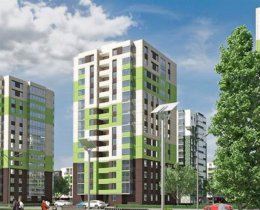
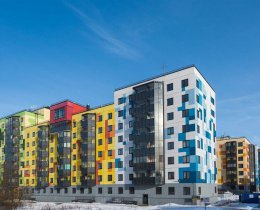
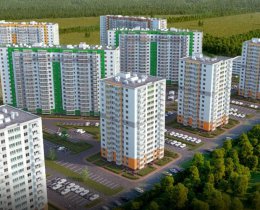
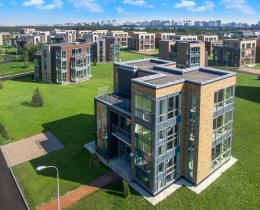




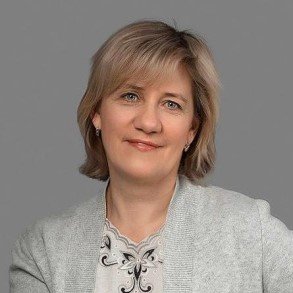
评论